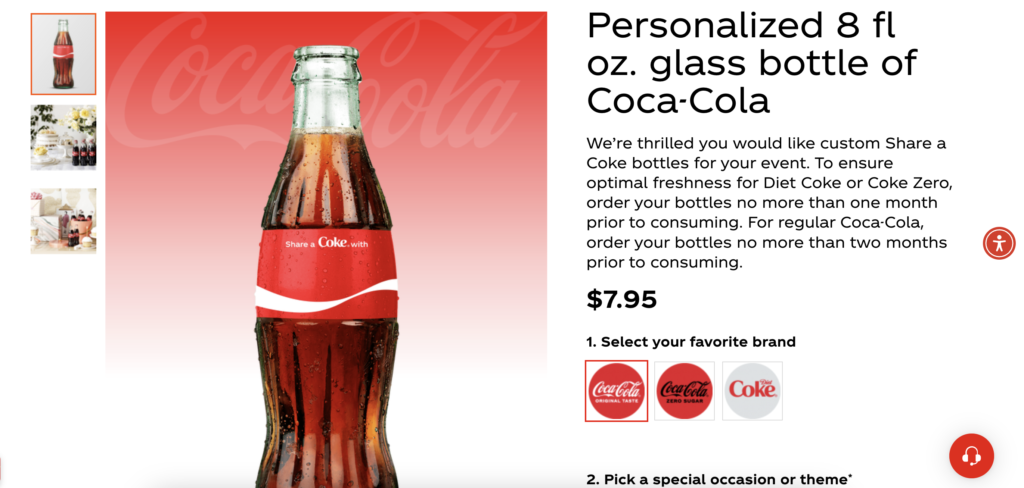
Many people use the terms “content marketing” and “content writing” interchangeably – and that’s a problem.
Because even though both terms are related, they are distinctly different from each other.
Let’s take a look:
TLDR
Content marketing uses written content (like blog posts, articles) to attract, engage, and convert an audience. Content writing is the process of creating informative, valuable written content to achieve those marketing goals.
What is Content Marketing?
Content marketing is the process of planning, creating, and distributing valuable information, with the aim of acquiring a clearly defined audience.
Content marketing is, therefore, the subtle, non-salesy application of content as a marketing tool.
Depending on the audience preferences, the nature of the business, and audience touchpoints, you can use a mixture of visual, written, and audio content across paid and organic search, email, and social media to drive your customers from the awareness stage to the final action stages.
The benefit of content marketing is to provide value to the target audience for free so that the audience is compelled to take advantage of the brand’s paid products or services.
Content Marketing Example:
Spotify Wrapped
Spotify Wrapped stands out as a masterclass in content marketing. It takes user data and transforms it into a delightful, personalised experience. Imagine Instagram Stories revealing your musical habits from the past year! Users swipe through data-driven graphics showcasing their top songs, artists, and more.

Why is it so successful? People crave insights into their own behaviour, and Wrapped satisfies that curiosity in a way that’s perfect for sharing. The highly shareable format, combined with everyone receiving their Wrapped results simultaneously, fuels conversation online and offline.
Key Takeaways:
- Data can be delightful: Don’t just collect user data, use it to create something engaging and positive for your users.
- Personalisation is king: Tailor your content to each user for maximum impact.
- Originality matters: The “year in review” concept is saturated. Before copying Spotify, ensure your approach is truly unique.
What is Content Writing?
Professional content writing is the process of creating written content that supports your content marketing objectives.
A content writer’s goal is to create valuable and high-quality content that can be used by the content marketer in their content marketing strategy.
Content writing is therefore dependent on content marketing. It is only after a content marketing strategy is laid out can a writer create strategic content.
Content Writing Example
Blog Post on Prototyping Tools
- Focus: This blog post is a piece of content crafted by a content writer.
- Content: The writer would research the benefits of using prototyping tools and present them in an informative and engaging way.
- Target Audience: The writer would consider who would benefit from this information, like small business owners, freelancers, or design and development teams.
- Style and Tone: The writing should be clear, concise, and tailored to the target audience. For example, if targeting business owners, avoid overly technical jargon.

What is the Difference Between Content Marketing and Content Writing?
Content marketing is a far larger and commercially thought-through marketing discipline than content writing.
Content marketing involves a range of technical aspects like market research, customer personas, understanding analytics, keyword research, competitor analysis, etc.
When it comes to content marketing vs content writing, there are two main differences:
- Focus: Content writing focuses on crafting the content itself, while content marketing focuses on using content to achieve marketing objectives.
- Scope: Content writing is one piece of the content marketing puzzle. Content marketing encompasses the entire strategy, including research, distribution, and measurement.
To give you a metaphor:
If content marketing is a painting, content writing is one of the many colours used in the painting.
It is a content marketer’s responsibility to create measurable content marketing strategies and to use different attribution models to prove the value of the content.
Content marketing relies on content writing to create the content that attracts the target audience. Strong content writing is essential for successful content marketing.
A content writer usually reports to a content marketer or content manager.
Although content writing is more straight-forward, this does not mean creating any kind of content will do. Written content has to align with the content marketing objectives; it has to be valuable, engaging, well-formatted, user-friendly, and SEO-friendly.
Both content marketing and content writing are indispensable because more and more people are becoming wary of traditional marketing efforts. Today’s audiences would rather choose a brand on their own instead of being sold to.
What Is Content Marketing Writing?
Content marketing writing creates informative, engaging online content (blogs, articles, etc.) to attract, engage, and convert readers. It builds trust and loyalty while promoting a brand or product.
What is the Value of Content Marketing?
Content marketing is the best way to convert sales prospects into first-time customers, and first-time customers into repeat customers. It is effective because it establishes trust and humanises the sales process.
For example:
You wouldn’t walk up to people and tell them about all the items available in your clothing store. Rather than attracting customers, blatant self-promotion like this would turn them off to even entering your store. The same rule of minimal self-promotion applies to the online world too, especially today.
The average consumer is overwhelmed and unimpressed by constantly being sold to. Unless a brand provides value for free, they cannot trust it enough to become a customer.
This is where content marketing comes in.
Today, simply partnering with a celebrity or influencer won’t do. A brand has to address its target audience’s biggest problems – or risk being overshadowed by competitors.
This is why all the brands today—whether big or small—are investing in content marketing services as part of their marketing strategy.
As long as you are creative and have the technical know-how, you can use content marketing to acquire a loyal customer base and drive sales.
Unlike advertising, you can successfully implement content marketing on a small budget. You are more likely to achieve sales when you help solve customer problems instead of intrusively shoving your brand into their face.
No wonder the traditional advertising industry is slowly dying: spending money and hoping for the best is no longer effective.
What works now is being visible without being intrusive.

How Do You Write Good Marketing Content?
To write good marketing content, you need to:
1. Research your audience
To write effective marketing content, you need to pick an appropriate topic. Whatever you write should either solve a primary customer problem, entertain them, or educate them about something they need to know.
One of my favourite examples of good marketing content, is the personalised Coca-Cola bottle campaign. People around the world, who don’t even drink coke were buying these bottles as souvenirs for themselves or loved ones. The campaign was fun, gave people something to talk about and made people so scared to miss out that they felt they HAD to buy a bottle.

2. Conduct keyword research
Once you choose a topic, you have to conduct keyword research to identify relevant phrases that are easy to rank for. Keyword research is essential after picking a topic because doing it right will help you be more visible to your customers on search engine result pages.
3. Know your competition
Analysing what competitors are doing well can inspire you to come up with fresh takes on your present and future marketing content.
4. Write original content
Make sure your content is not plagiarised, suits your brand voice, and is relevant to your target audience. This is particularly crucial in fields such as medicine or other sciences that require professional expertise. For example, if you work in the science industry then it is recommended to find a person who works as a science writer to get high-quality content. Or, if you’re looking to target a French audience, you may want to involve a professional French translator or copywriter.
How Do You Know That Your Content Marketing Works?
You know that your content marketing works if it meets the objectives you set for it at the beginning.
With proper content marketing, you should be able to forecast the growth and revenue and as such set yourself metrics and KPIs before you begin.
To know if your content marketing is effective, you need to set SMART goals at the very beginning.
SMART is an acronym for Specific, Measurable, Attainable, Relevant, and Time-bound.
Once you have defined SMART goals for your business, you can track and measure them using Key Performance Indicators (KPIs).
Depending on the result of the KPIs, you can alter your content marketing efforts accordingly.



